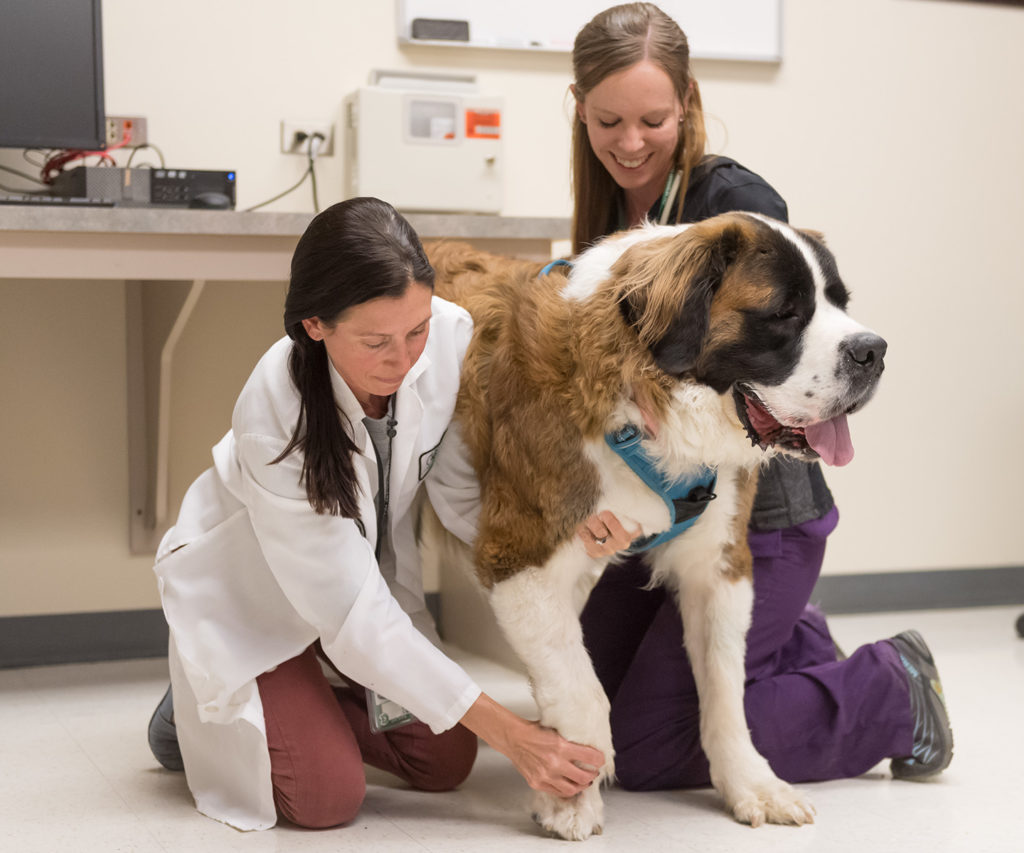
By Breonna Thomas, MS
Veterinary Teaching Hospital Neurology Clinical Trials Coordinator
With the ever-growing popularity of CBD (cannabidiol, a component of the Cannabis sativa plant) across the country, there are claims that it cures just about everything and it’s safer than most conventional medications. With all of these glowing tales it’s no surprise that we’re seeing a rising interest from owners to use CBD in their canine companions.
However, since no research backs these claims, veterinary professionals have been left with our hands tied. At Colorado State University, Dr. Stephanie McGrath and her neurology team are investigating the safety and efficacy of CBD’s use in uncontrolled epileptic patients.
Our goal is to enroll at least 60 dogs in this double-blinded crossover clinical trial so that we can come closer to answering questions such as:
- Is it effective?
- Is it safe?
- Does it have any interactions with other medications?
In order to qualify, dogs must be having two or more seizures per month for four consecutive months while on therapeutic levels of routine anti-epileptic medications. After an initial screening over email to determine that dogs meet the basic qualification criteria, they will come to CSU for an MRI and CSF tap in order to rule out any other underlying causes of the epilepsy.
Assuming there are no other obvious causes for their epilepsy, they will begin the seven-month crossover study. All dogs start with either CBD or placebo for three months, undergo a four-week washout period, and then crossover to the opposite oil for the remaining three months.
Owners will need to bring their dog into CSU every four weeks throughout the study and during the seven-month trial they will be unable to make any changes to their dog’s routine AED therapy. For non-local owners, some visits may be able to be conducted through the primary care veterinarian; please contact the trial team for more information.
All testing and bloodwork will be covered by the cost of the study, and owners will receive periodic monetary credits to their VTH account to be used at their discretion.
While this trial is not guaranteed treatment, it’s incredibly important in helping advance our understanding of CBD’s efficacy for this horrible disease process that afflicts so many dogs.
For more information about this trial, referring veterinarians and dog owners may contact Breonna Thomas at 970-305-0455 or CSUNeuroTrials@colostate.edu.